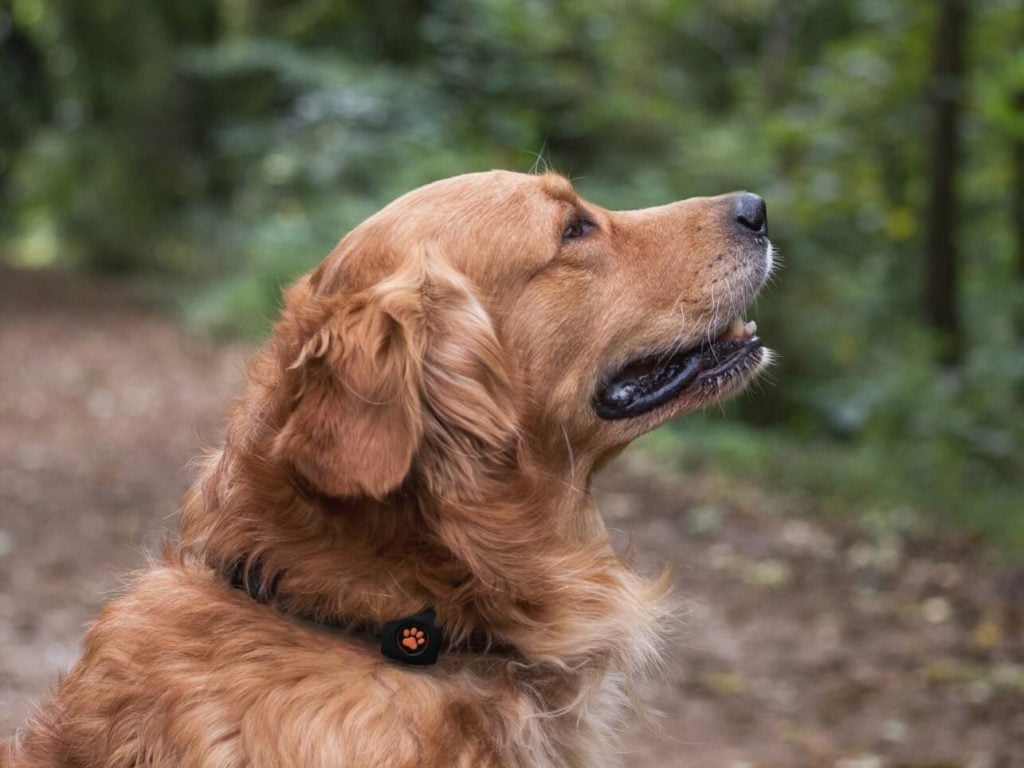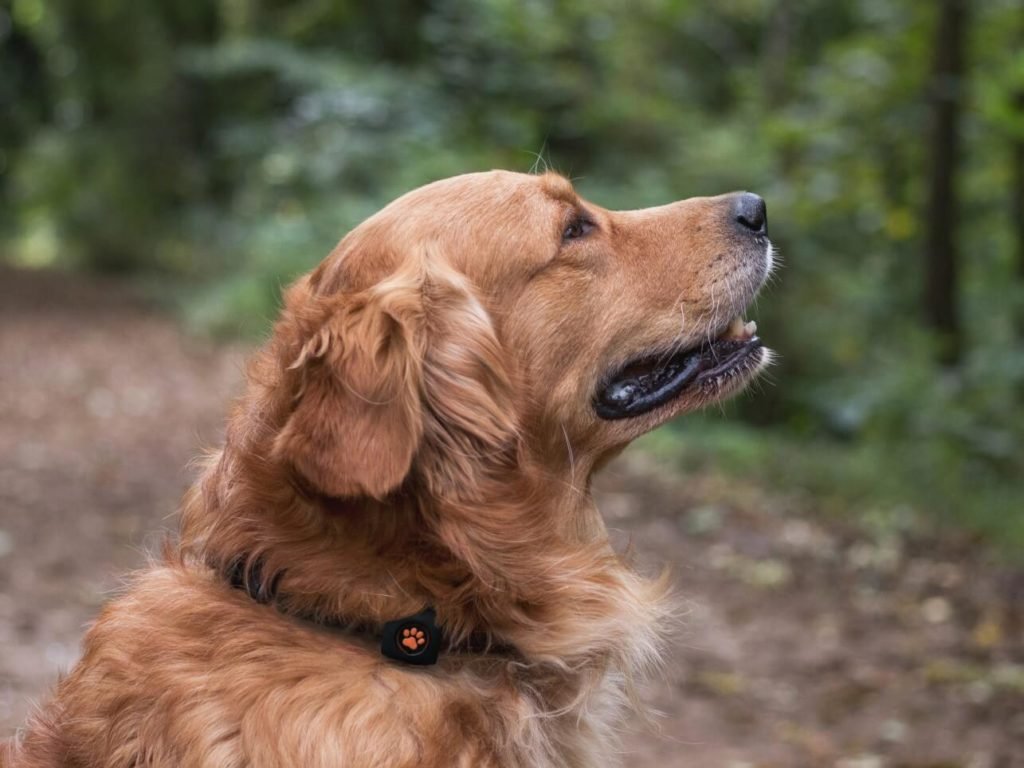Golden retrievers are adorable, friendly, and energetic dogs that make fantastic companions for families and individuals alike. If you’re lucky enough to have one, you’re probably wondering, “How long can golden retrievers walk?” Well, you’ve come to the right place!
When it comes to exercise, golden retrievers have a lot of energy to burn. They are active dogs that require regular physical activity to keep them happy and healthy. So, lace up your sneakers and get ready for some fun adventures with your furry friend!
But wait, before you hit the pavement, it’s important to know that the ideal walking duration for golden retrievers can vary depending on factors like their age, fitness level, and any underlying health conditions they may have. So, let’s dive into the details and find out just how long your golden retriever can walk!

How Long Can Golden Retrievers Walk? A Comprehensive Guide
Golden Retrievers are known for their active and energetic nature, making them perfect companions for outdoor activities. However, it’s crucial to ensure that they don’t overexert themselves during walks. In this comprehensive guide, we will explore how long golden retrievers can walk comfortably, factors to consider when determining their walking duration, and tips to ensure a safe and enjoyable walking experience for both you and your furry friend.
The Age and Health of Your Golden Retriever
When it comes to determining how long a golden retriever can walk, their age and health are vital factors to consider. Puppies have growing bodies and limited stamina, so their walks should be shorter and less intense compared to adult dogs. As a general rule, puppies under six months old should have walks lasting around 15-20 minutes, gradually increasing to 30 minutes as they grow.
Adult golden retrievers can handle longer walks, typically ranging from 30 minutes to an hour. However, it’s important to assess your dog’s overall health. If your retriever has any underlying health conditions or is elderly, their endurance may be lower, and shorter walks of 15-30 minutes may be more appropriate. Always consult with your veterinarian to ensure you’re meeting your dog’s specific needs.
Remember, every dog is unique, and while these guidelines provide a general idea, it’s essential to pay attention to your golden retriever’s cues and adjust their walking duration accordingly.
Physical Conditioning and Exercise Level
Golden Retrievers are known for their athletic abilities and require regular exercise to stay healthy. The amount of physical conditioning and exercise your dog receives will directly impact their walking endurance. A well-exercised retriever will have greater stamina and be able to handle longer walks.
If your golden retriever is consistently engaging in activities that challenge their endurance, such as playing fetch, swimming, or running, they will likely be able to handle longer walks. On the other hand, a sedentary lifestyle with limited physical activity may reduce their walking capabilities. It’s important to gradually build up their endurance by increasing the duration and intensity of their exercises over time.
Additionally, it’s crucial to consider your golden retriever’s breed traits. While each dog has its unique abilities, golden retrievers are bred to be active and energetic. This means they generally have good endurance and can handle longer walks compared to other breeds.
Environmental Factors
When determining how long a golden retriever can walk, it’s essential to take into account the environmental factors that may affect their endurance. Extreme weather conditions, such as heat, humidity, or cold, can significantly impact a dog’s ability to walk comfortably and safely.
In hot weather, dogs are prone to heat exhaustion and heatstroke. It’s crucial to walk your golden retriever during cooler parts of the day, such as early mornings or evenings. Ensure they have access to plenty of water and provide shade breaks during the walk.
In colder weather, shorter walks may be necessary to prevent your dog from getting too cold or developing frostbite. Consider investing in a coat or sweater to keep them warm, especially if they have shorter fur.
Always prioritize your golden retriever’s well-being and adjust their walking duration based on the environmental conditions to ensure their safety and comfort.
Tips for a Safe and Enjoyable Walk
Now that you understand the factors involved in determining how long golden retrievers can walk, let’s explore some tips to make their walking experience safe and enjoyable for both of you:
- Gradually increase their walking duration and intensity to build up their endurance over time.
- Bring plenty of water and a collapsible water bowl to keep your golden retriever hydrated during the walk.
- Choose appropriate walking surfaces, avoiding hot pavement or rough terrain that may hurt your dog’s paws.
- Use a sturdy leash and harness to ensure control and prevent injuries.
- Allow your golden retriever to explore, sniff, and take breaks during the walk. It’s their way of experiencing the world and engaging their senses.
Remember, walking is not just a physical exercise for your golden retriever; it’s also a mental stimulation. Allow them to enjoy their surroundings and take breaks when needed.
Golden Retriever Health Maintenance: Diet and Exercise
Proper diet and exercise play a crucial role in maintaining the overall health and well-being of golden retrievers. In this section, we will discuss the importance of a balanced diet and appropriate exercise in keeping your golden retriever healthy and happy.
The Importance of a Balanced Diet
A balanced diet is essential for ensuring that your golden retriever receives the necessary nutrients to support their growth, muscle development, and overall health. Here are some key considerations for your golden retriever’s diet:
– Feeding Schedule: Establish a regular feeding schedule to maintain healthy eating habits.
– High-Quality Dog Food: Choose a high-quality dog food that is appropriate for their age, size, and specific dietary needs.
– Portion Control: Avoid overfeeding and follow the recommended portion sizes to prevent obesity.
– Proper Nutrient Balance: Ensure that your golden retriever’s diet consists of the right balance of proteins, carbohydrates, fats, vitamins, and minerals.
– Treats and Supplements: Limit the intake of treats and supplements, as excessive amounts can lead to weight gain or nutritional imbalances.
Consult with your veterinarian for personalized dietary recommendations based on your golden retriever’s specific needs.
Exercise for Physical and Mental Stimulation
Golden retrievers are active and energetic dogs that require regular exercise to maintain their physical and mental well-being.
Physical exercise helps your golden retriever in various ways:
– Weight Management: Regular exercise helps prevent obesity, a common issue in golden retrievers.
– Muscle Tone and Strength: Exercise helps build strong muscles and maintain overall body strength.
– Cardiovascular Health: Regular aerobic exercise strengthens the heart and improves blood circulation.
– Mental Stimulation: Exercise provides mental stimulation and helps alleviate boredom and destructive behaviors.
When it comes to exercise, aim for a balance between physical activities and mental stimulation. Here are some ways to ensure your golden retriever gets sufficient exercise:
– Daily Walks: Take your golden retriever for regular walks to provide both physical exercise and mental stimulation.
– Active Play: Engage in active play sessions, such as fetch or agility training, to keep your golden retriever physically and mentally engaged.
– Swimming: Golden retrievers have a natural affinity for water and are excellent swimmers. Swimming provides a low-impact exercise that is gentle on their joints.
As with any physical activity, consult with your veterinarian to determine the appropriate exercise routine based on your golden retriever’s age, health, and fitness level.
Golden Retriever Training: Tips for Obedience and Behavior
Training is an essential aspect of owning a golden retriever. In this section, we will provide you with tips for obedience and behavior training to ensure your golden retriever is well-behaved and a joy to have around.
Obedience Training
Obedience training aims to establish clear communication between you and your golden retriever, teaching them basic commands and good manners.
Here are some key tips for successful obedience training:
– Positive Reinforcement: Use rewards, such as treats and praise, to reinforce good behavior and encourage your golden retriever to obey commands.
– Consistency: Be consistent with your commands and expectations to avoid confusion for your golden retriever.
– Start Early: Begin obedience training when your golden retriever is a puppy to establish good habits and behaviors early on.
– Use Simple Commands: Start with simple commands like “sit,” “stay,” and “come.” As your golden retriever masters these commands, you can gradually introduce more advanced commands.
– Patience and Persistence: Training takes time and patience. Be persistent and consistent in your training sessions, and remember to always reward good behavior.
Consider enrolling your golden retriever in a puppy training class or seek professional help if you encounter any challenges in their obedience training.
Behavior Training
Behavior training focuses on addressing specific behavioral issues to ensure that your golden retriever behaves appropriately in various situations.
Here are some tips for effective behavior training:
– Identify Problem Behaviors: Observe and identify any problem behaviors your golden retriever may have, such as excessive barking, jumping on people, or destructive chewing.
– Positive Reinforcement: Use positive reinforcement techniques to reward good behavior and discourage unwanted behaviors.
– Address Specific Issues: Tailor your training approach to address the specific behavioral issues your golden retriever displays. Seek professional help if needed.
– Socialization: Expose your golden retriever to various people, animals, and environments to help them become well-socialized and confident.
– Be a Role Model: Dogs often learn by observing their owners’ behavior. Be a positive role model and display the behaviors you want your golden retriever to emulate.
Behavior training requires consistency, patience, and a deep understanding of your golden retriever’s unique personality. Seek guidance from a professional dog trainer if you encounter any significant behavioral challenges.
Key Takeaways: How Long Can Golden Retrievers Walk?
- A golden retriever can walk for about 30 minutes to an hour at a time.
- It’s important to consider the age and fitness level of the dog before determining the duration of the walk.
- Gradually increase the length and intensity of walks for younger and more active golden retrievers.
- Older or less active golden retrievers may need shorter, more leisurely walks.
- Always pay attention to signs of fatigue or discomfort in your dog, and adjust the walk accordingly.
Frequently Asked Questions
A golden retriever is an active and energetic breed that requires regular exercise to stay happy and healthy. If you’re wondering how long a golden retriever can walk, here are some frequently asked questions to help you understand their exercise needs.
1. How much exercise do golden retrievers need?
Golden retrievers are known for their high energy levels. They require at least an hour of exercise every day to keep them mentally and physically stimulated. Regular walks, playtime in the backyard, and interactive games are great ways to meet their exercise needs.
It’s important to note that every golden retriever is unique, and their exercise requirements may vary. Factors such as age, health condition, and individual energy levels should also be considered when determining the appropriate amount of exercise for your dog.
2. Can golden retrievers go for long walks?
Golden retrievers are generally active dogs and can handle long walks, especially when they are well-trained and accustomed to regular exercise. However, it’s crucial to build up their endurance gradually to avoid overexertion or potential injuries.
If your golden retriever is not used to long walks, start with shorter distances and gradually increase the length over time. Pay attention to their energy levels, and if they show signs of exhaustion or discomfort, take breaks or shorten the walk. It’s always best to consult with your veterinarian for specific advice based on your dog’s health and fitness level.
3. How do I know if my golden retriever is getting enough exercise?
There are several indicators that can help you determine if your golden retriever is getting enough exercise. One of the main signs is their behavior. If your dog is calm, relaxed, and content after exercise, it’s usually a good indication that they are adequately exercised.
On the other hand, if your golden retriever is displaying destructive behavior, restlessness, or excessive barking, it might be a sign that they aren’t getting enough physical activity. Adjusting their exercise routine to include longer walks, additional playtime, or mental stimulation activities can help alleviate these behaviors.
4. Are there any age restrictions for walking golden retrievers?
Golden retriever puppies have different exercise needs compared to adult dogs. While it’s essential to provide them with daily exercise, including short walks and playtime, it’s crucial to avoid activities that put excessive strain on their growing joints.
Your veterinarian can provide specific guidance on when it’s appropriate to start longer walks and more strenuous exercise routines for your golden retriever puppy. Generally, it’s recommended to wait until they are at least 6-8 months old before increasing the intensity and duration of exercise.
5. Can older golden retrievers still go for walks?
Golden retrievers can continue to enjoy walks well into their senior years. However, older dogs may have different exercise needs and physical limitations. It’s important to adapt their exercise routine to accommodate any age-related conditions, such as arthritis or joint problems.
Shorter and less strenuous walks, along with low-impact exercises like swimming, can be great alternatives for older golden retrievers. Regular check-ups with your veterinarian can help assess your senior dog’s health and provide appropriate exercise recommendations based on their individual needs.

Summary
Golden Retrievers can walk for about 30 minutes to an hour per day, but it is important to consider their age, fitness level, and any underlying health conditions. Puppies and older dogs may need shorter walks, while young and active retrievers can handle longer walks.
It’s crucial to pay attention to the signs of fatigue or discomfort during a walk and adjust accordingly. Regular exercise is essential for the overall health and well-being of Golden Retrievers, but it’s equally important not to overexert them and provide them with ample rest and water breaks. By considering their individual needs, you can ensure your Golden Retriever gets the right amount of exercise to keep them happy and healthy.
